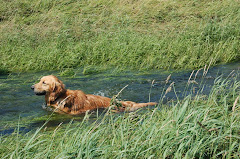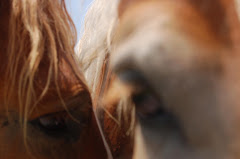 Before
BeforeThese are "before" and "after" pictures of "Buddy", a 13 year old mixed breed dog. Notice the "gray/brown" tartar accumulation on his teeth before dental prophylaxis or cleaning. Then compare his teeth after cleaning. This tartar is removed with manual and ultrasonic scaling. The teeth are then polished. Fortunately, Buddy did not need any extractions. Many times, I see pets with severely infected gums and loose, rotten teeth which need to be extracted. The most I have ever extracted at one time was seventeen teeth in a Chihuahua. And while dogs get along fine without all their 42 teeth, proper dental care and at home brushing can prevent tooth and gum loss. And yes, I did say at home brushing of your pet's teeth. Daily brushing is recommended but even 2-3 times weekly helps. We commonly hand out complimentary "doggie" and "kitty" toothbrushes and sample toothpaste to aid in brushing your pet's teeth.
 After
AfterSo remember, that "doggie" breath you notice from Fido might just indicate he has periodontal disease!










Okay - I'm behind in my dental treatments to Dakota's teeth which I signed on to do post-tooth extraction...I'll brush their teeth tomorrow, I promise!
ReplyDeleteI would also like to suggest that a 'natural' diet is also appropriate for keeping teeth clean. Raw meaty bones provide natural cleaning of the teeth, beneficial chewing that canines need, and is species appropriate vs kibble that perpetuates this problem in the first place.
ReplyDelete